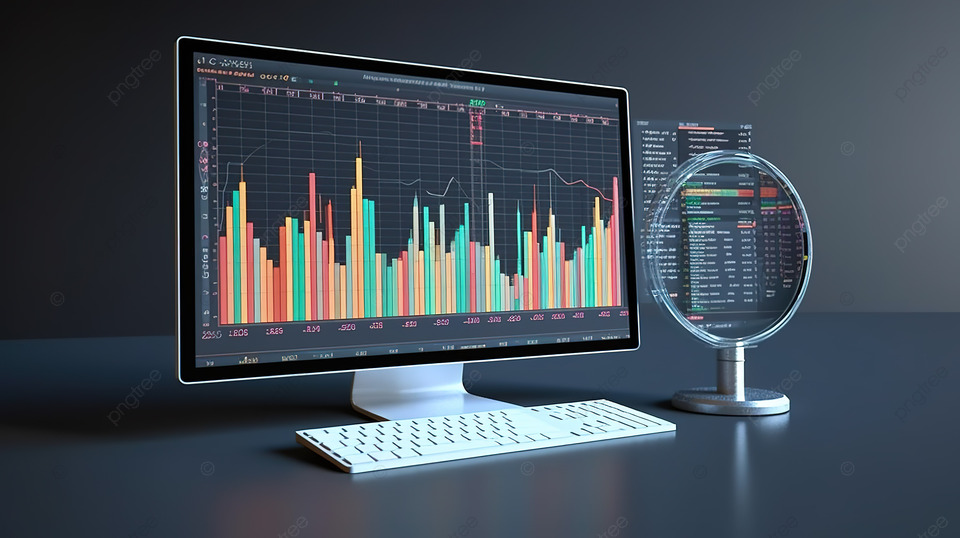The benefits of desk research are multiple. Desk research is a cornerstone of effective market analysis – and it enables businesses to leverage existing data to gain deep market insights, identify trends, and make strategic decisions without the high costs associated with primary research.
Benefits Of Desk Research
Have you ever wondered how to gain comprehensive market insights without breaking the bank? Desk research might be the answer. This cost-effective method leverages existing data to provide valuable market analysis, helping businesses make informed decisions and stay competitive.
… But, what are the real benefits of desk research in market analysis?
Desk research offers significant cost advantages compared to primary research methods — and here’s how desk research proves to be cost-effective:
Lower Costs Compared to Primary Research
Primary research methods (surveys, focus groups, and interviews) often require substantial financial investment. These methods involve costs related to designing research instruments, recruiting participants, and compensating them for their time. Additionally, conducting primary research typically requires significant data collection and analysis time and resources.
In contrast, desk research leverages existing data sources, such as industry reports, academic journals, government publications, and online databases. This eliminates the need for costly primary data collection efforts.
- Example: A small business looking to enter a new market can access industry reports and market analysis from reputable sources like Gartner or IBISWorld, saving thousands of dollars compared to commissioning a custom market study.
Utilization of Existing Data
Desk research taps into a wealth of available data often collected and analyzed by reputable organizations. This data includes market reports, consumer studies, academic research, and statistical databases, providing comprehensive insights at a fraction of the cost.
- Example: A startup in the tech industry can utilize existing research on technology adoption trends from sources like Pew Research or Statista, gaining valuable insights without incurring high research costs.
Time Efficiency
One of the significant benefits of desk research in market analysis is its time efficiency. Businesses can quickly gather and analyze information by utilizing existing data, enabling faster decision-making and strategic planning.
Actually, primary research methods can be time-consuming. These methods require time to design, implement, collect, and analyze data. In contrast, desk research leverages pre-existing data sources, allowing businesses to quickly access and analyze information.
- Example: A company needing to understand market trends can access industry reports and databases like Statista or Nielsen, which provide ready-made data and analysis, saving weeks or even months compared to conducting new research.
Impact on Timely Decision-Making
Timely access to market data is crucial for making informed decisions, especially in fast-paced industries. Desk research allows businesses to quickly gather relevant information and respond promptly to market changes and emerging opportunities.
- Example: During a market crisis, a company can utilize desk research to quickly understand the situation, assess the impact, and develop a response strategy by reviewing news articles, industry reports, and economic forecasts.
Access to a Wide Range of Data Sources
Another benefit of desk research in market analysis is its diverse array of data sources, including industry reports, academic journals, government publications, news articles, and online databases. This diversity ensures a broad perspective on market conditions and trends.
- Example: A company looking to understand the global e-commerce market can access reports from Statista, academic studies on consumer behavior, government trade statistics, and news articles covering recent developments.

Holistic Understanding of Market Dynamics
By combining data from multiple sources, desk research provides a comprehensive view of market dynamics, including economic indicators, consumer behavior, technological advancements, and competitive landscapes. This holistic approach helps businesses identify opportunities and threats, understand market trends, and make informed decisions.
- Example: To analyze the renewable energy market, a company might use government publications for regulatory information, industry reports for market size and growth projections, and academic research for technological innovations.
Analyzing Historical Data for Trend Identification
Desk research involves the analysis of historical data from various sources such as industry reports, market surveys, and academic studies. This historical perspective helps identify long-term trends and patterns in the market.
- Example: A company looking to enter the electric vehicle (EV) market might analyze historical sales data, technological advancements, and regulatory changes over the past decade to understand EVs’ growth trajectory and future potential.
Predicting Future Market Movements
Businesses can forecast future market trends by leveraging existing data and advanced analytical tools. Predictive analytics, supported by desk research, helps anticipate changes in consumer behavior, technological advancements, and competitive dynamics.
- Example: A fashion retailer can use trend reports and social media analytics to predict upcoming fashion trends. By analyzing past fashion cycles and current consumer preferences, they can adjust their product lines.
Gathering Information on Competitors
Desk research involves collecting data from various sources to build a comprehensive profile of competitors. This includes analyzing their product offerings, pricing strategies, marketing campaigns, financial performance, and customer feedback.
- Example: A company in the consumer electronics sector can use desk research to analyze the product lines, pricing strategies, and promotional activities of competitors like Samsung and Apple. This information helps them identify gaps in the market and opportunities for differentiation.
Understanding Competitive Strategies and Positioning
Businesses can understand their strategic priorities and market positioning by reviewing competitors’ public statements, marketing materials, and strategic initiatives. This helps anticipate competitors’ moves and develop counter-strategies.
- Example: A retail company can analyze the strategic initiatives of competitors like Walmart and Amazon by reviewing their press releases, annual reports, and industry analyses. This information helps them understand their growth strategies, market positioning, and potential future moves.
Use of Desk Research in Competitive Benchmarking
Desk research enables businesses to benchmark their performance against competitors by comparing key metrics such as market share, revenue growth, customer satisfaction, and innovation. Competitive benchmarking helps identify areas for improvement and opportunities for gaining a competitive advantage.
- Example: A software company can use desk research to benchmark its customer satisfaction scores against competitors by reviewing industry reports and customer reviews from platforms like Gartner and Capterra. This helps them identify strengths and weaknesses in their customer service and product offerings.
Identifying Potential Market Risks
Desk research helps businesses identify various types of risks, including market, regulatory, and competitive risks. Companies can anticipate potential issues by reviewing industry reports, regulatory updates, and market analyses and plan accordingly.
- Example: A financial services company can use desk research to monitor regulatory changes and economic indicators that might affect its operations. It can proactively adjust its compliance strategies by staying informed about potential regulatory shifts.
Developing Strategies to Mitigate Risks
By understanding the nature and extent of potential risks, businesses can develop strategies to mitigate them. Desk research provides insights into other companies’ best practices and successful strategies in similar situations.
- Example: A manufacturing company facing supply chain disruptions can use desk research to study how other firms have managed similar challenges. By reviewing case studies and industry reports, they can identify effective strategies for diversifying suppliers and improving supply chain resilience.
Analyzing Consumer Demographics and Psychographics
Desk research allows businesses to segment their target audience by analyzing demographic data (age, gender, income, education) and psychographic data (lifestyle, values, interests). This segmentation helps tailor marketing strategies to specific consumer groups.
- Example: A fashion retailer can use demographic data from government publications and psychographic profiles from market research reports to create targeted marketing campaigns for consumer segments, such as millennials and Gen Z.
Understanding Consumer Behavior and Preferences
By analyzing existing data from various sources such as market reports, consumer surveys, and academic studies, businesses can gain a deep understanding of consumer behavior and preferences. This includes purchasing habits, brand loyalty, and factors influencing buying decisions.
- Example: A food and beverage company can use desk research to understand consumer preferences for healthy eating. They can identify trends such as the increasing demand for organic and plant-based products by reviewing industry reports and consumer surveys.
How SIS International’s Desk Research Services Help Businesses
At SIS International, we leverage our extensive expertise in desk research to provide businesses with comprehensive market insights, enabling them to make informed strategic decisions. Here’s how our desk research services benefit businesses:
Enhanced Strategic Planning
We offer businesses detailed market analysis, which is crucial for strategic planning. Our team helps businesses understand market dynamics, competitive landscapes, and consumer trends by analyzing existing data from various credible sources.
Increased Revenue
Our desk research services enable businesses to identify new revenue opportunities by providing deep market insights. Understanding market gaps and consumer demands helps businesses tailor their offerings to meet these needs, driving sales and increasing revenue.
Risk Reduction
SIS helps businesses mitigate risks by providing detailed insights into potential market challenges and threats. Analyzing regulatory environments, economic indicators, and industry trends, we help businesses develop strategies to navigate potential risks effectively.
Improved Marketing Efficiency
With detailed consumer insights obtained through our desk research services, businesses can create more targeted and effective marketing campaigns. Understanding consumer behavior, preferences, and demographics helps businesses tailor their marketing efforts to reach the right audience.
Accelerated Growth and Innovation
Our desk research services help businesses identify opportunities for innovation and growth. By staying informed about market trends, technological advancements, and consumer needs, businesses can innovate effectively and maintain a competitive edge.
Boosted ROI
By leveraging our expertise, businesses can achieve a higher return on investment (ROI). Detailed market insights enable businesses to make informed decisions, optimize their strategies, and allocate resources efficiently, leading to improved financial performance.
About SIS International
SIS International offers Quantitative, Qualitative, and Strategy Research. We provide data, tools, strategies, reports, and insights for decision-making. We also conduct interviews, surveys, focus groups, and other Market Research methods and approaches. Contact us for your next Market Research project.



